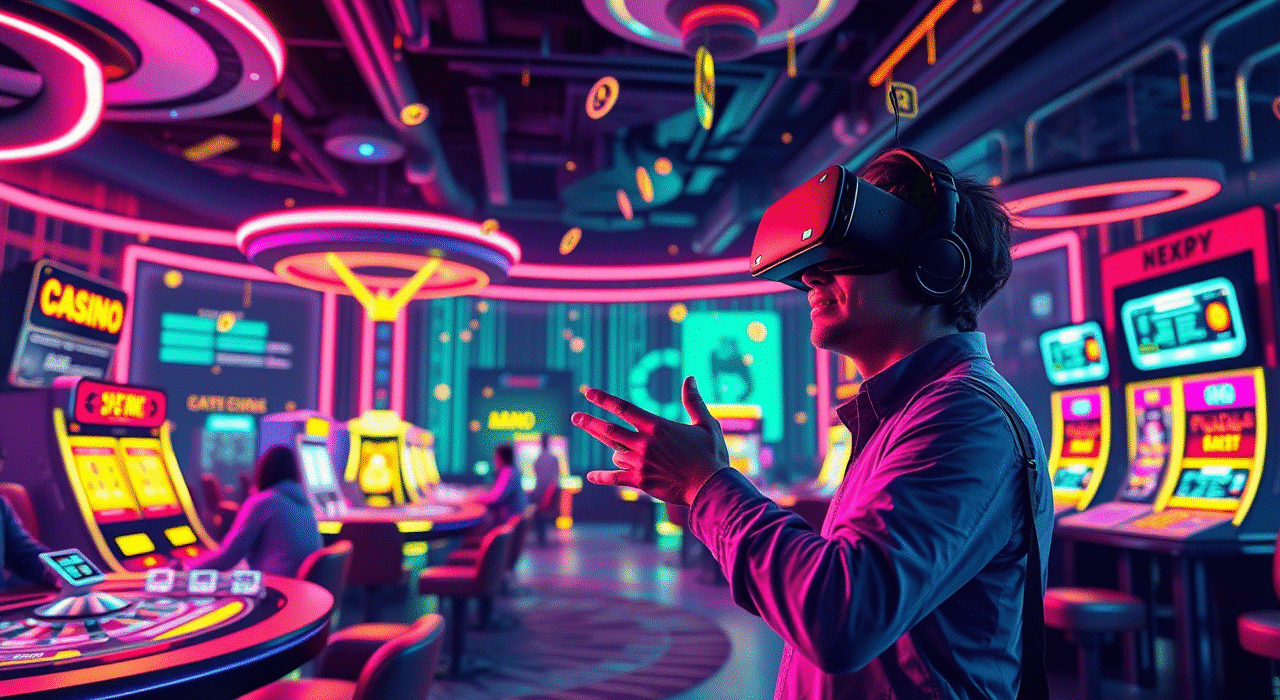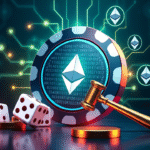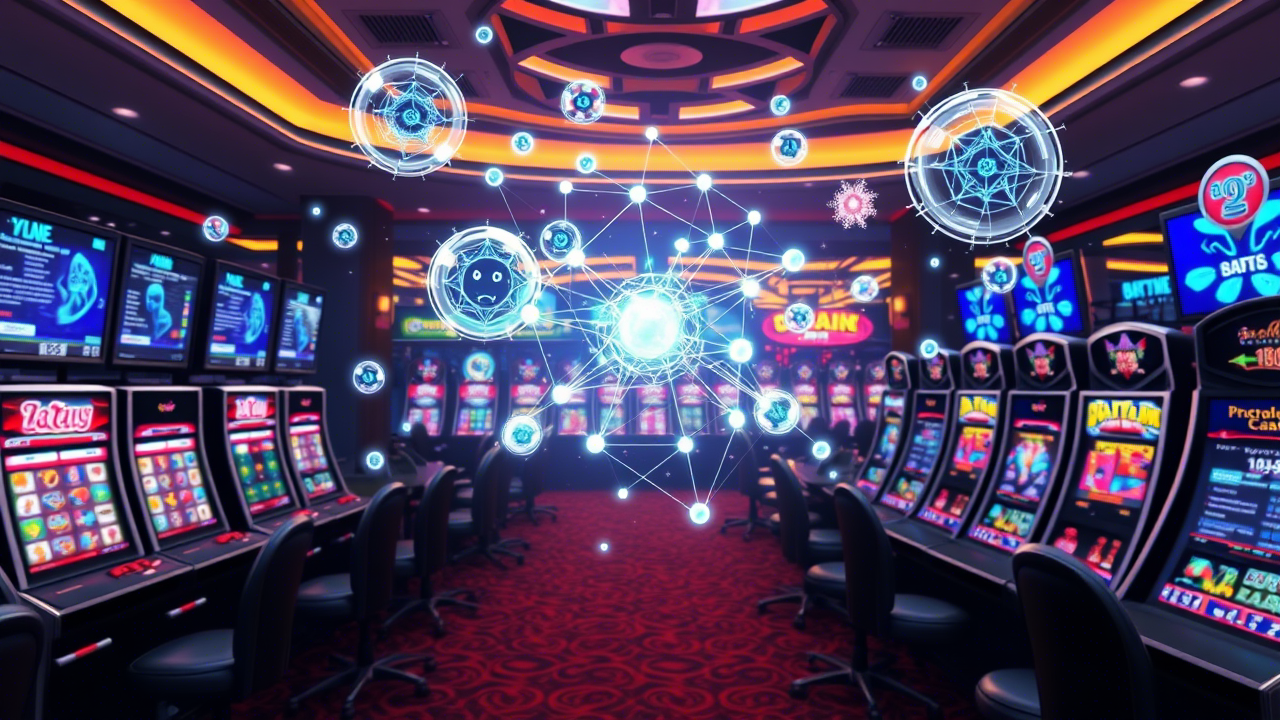🎲 The House Has Always Won—Until Now?
For centuries, the gambling industry has thrived on a simple, unspoken truth: the house always wins. Brick-and-mortar or online, casinos control the odds, the systems, the payouts—and the power.
But what happens when there is no house?
Welcome to the world of decentralized casinos—a bold vision where code replaces croupiers, smart contracts replace operators, and the power shifts from a centralized entity to… well, the players themselves.
But is this future anywhere close to real? Or just another crypto-fueled hallucination?
🧬 What Is a Decentralized Casino?
A decentralized casino is not just a casino that accepts Bitcoin. It’s a platform built on blockchain technology where:
- Games run on smart contracts
- Payouts are automated and trustless
- Governance is managed by a DAO (Decentralized Autonomous Organization)
- Users often retain full control of their funds
- No central authority can interfere with outcomes or balances
In theory, it means no manipulation, no censorship, and no delays. Players don’t need to trust a company—they only need to trust the code.
But in practice? It’s far more complex.
🚀 The Promise of Decentralization
1. Transparent Game Mechanics
Every dice roll, card shuffle, and spin is processed on-chain. Players can inspect the contract to verify fairness.
Example: Edgeless and FunFair pioneered this approach by open-sourcing their code and math models.
2. Instant, Trustless Payouts
No more 72-hour withdrawal delays. If you win, the smart contract pays you immediately—no human intervention required.
3. Global Access
No KYC? No problem. Players from restricted regions can bypass regulatory gatekeepers. (For better or worse.)
4. DAO Governance
Imagine players voting on which games to add, how jackpots are distributed, or how treasury funds are used. That’s the decentralized model.
Example: DAO.Casino and CasinoFair flirted with this concept, giving token holders governance rights.
🏗️ What’s Been Built So Far?
| Platform | Key Features | Status |
| Edgeless | Smart contract-based games, no house edge | Active but niche |
| FunFair | Ethereum-powered casino engine | Pivoted, downsized |
| DAO.Casino | Tokenized governance + game creation toolkit | Dormant |
| Virtue Poker | Decentralized poker on Ethereum | Licensed in Malta |
| Rollbit | Hybrid model with on-chain rewards | Active, semi-centralized |
| ZKasino | Promised decentralization; rug-pulled | Under fire |
So yes—decentralized casinos exist, but many are either experimental, defunct, or have quietly moved toward centralization.
🧨 Why Isn’t This the Norm Yet?
⚠️ 1. User Experience Is Clunky
Using a decentralized casino requires:
- A crypto wallet
- Understanding of gas fees
- Comfort navigating DeFi interfaces
Compare that to: “Sign up with email and deposit via Visa.”
Advantage: Centralized casino.
⚠️ 2. Smart Contract Bugs Are Deadly
Smart contracts are only as good as the developers behind them. One overlooked bug can drain liquidity or rig outcomes.
Case in Point:
The DAO Hack of 2016 cost $60 million and led to Ethereum’s hard fork.
⚠️ 3. No Real Customer Support
When there’s no “house,” there’s also no human to contact if something goes wrong. No live chat, no complaint desk—just Discord, forums, and hope.
⚠️ 4. Legal Limbo
Governments don’t like unregulated gambling platforms—especially those skirting AML, KYC, and taxation.
And who do they hold accountable? The developer? The DAO? The token holders?
Without clear frameworks, many projects die trying to stay out of regulators’ crosshairs—or never launch at all.
⚖️ Regulator POV: Nightmare or Innovation?
➤ Pros:
- Full transparency (audit trails on-chain)
- Potential for responsible gambling via on-chain limits
- Reduced fraud risk
➤ Cons:
- Pseudonymity = money laundering risk
- No enforcement mechanism
- No licensing, often offshore or anonymous teams
Regulators in the EU, U.S., and Asia are still figuring out how to categorize decentralized gambling platforms. Are they casinos, tech apps, or DAOs?
Until there’s a definitive answer, most regulators default to: “They’re illegal.”
🌉 Hybrid Models: The Real Bridge?
Some platforms have accepted the reality: full decentralization is too utopian.
Instead, they’re building hybrid models, where:
- Core games run on smart contracts
- Licensing, branding, and support are centralized
- KYC is required for larger withdrawals
- Crypto tokens reward loyalty and participation
This lets them:
- Stay legal
- Provide decent UX
- Still offer blockchain-backed fairness
Platforms like Rollbit, Stake, and BC.Game are examples of this pragmatic approach—even if they’re not 100% decentralized.
🔮 So… Pipe Dream or Reality?
The dream of a fully decentralized casino is not dead—but it’s on life support in the face of:
- Regulatory crackdowns
- UX nightmares
- Lack of trust in “anonymous” teams
- Funding fatigue for failed launches
Yet, the core technology—smart contracts, DAOs, oracles, and tokenomics—is maturing fast.
As blockchain infrastructure improves (think: zero-gas chains, seamless wallets, embedded compliance tools), decentralized casinos might finally go mainstream.
Not in 2025. But maybe… 2027?
🧾 Final Bet: Code Can Beat the House, But It’s Not There Yet
A world where the casino is just code, payouts are instant, and governance is community-owned sounds utopian. But right now, decentralized casinos are trapped between technical brilliance and practical irrelevance.
They’ll remain a niche for the brave and crypto-native—until someone finally gets it all right.
And when they do?
The house may still win—but we will have built it.











